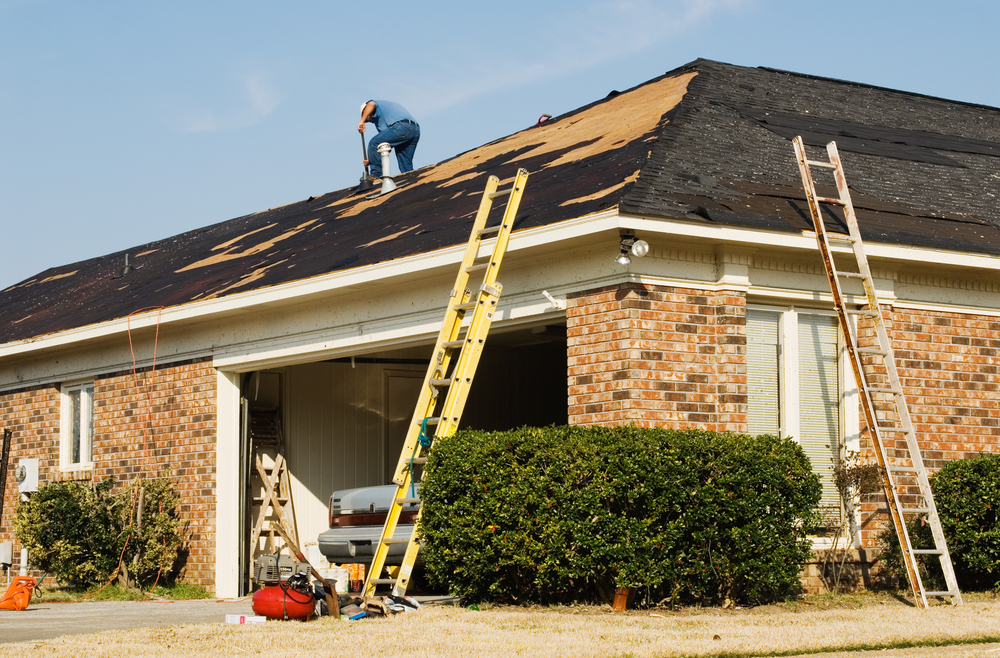Roofing systems can have a lifespan of anywhere from 10 to 50 years. So, at some point, most Denver homeowners will need to invest in a roof replacement. Time takes a toll on any roof, just as it does on all other elements of your home. Keeping up with the condition of your roof is an important task not just for your family’s protection, but also for your home’s resale value.
When your roofing system has reached its full lifespan, it’s important to have it replaced so that your home remains protected. After your roof has passed its expiration date, your home is at a heightened risk for damage, namely due to leaks in your roof. A roof that’s in need of replacement also won’t hold up as well in a storm, whether it be rain, hail, or snow. Given that we often experience major storms here in Denver, your roof must be durable enough to withstand the elements.
Denver Roof Replacement: Step-by-Step
Step 1: Select a Roofing Company
The first step in any roof replacement is hiring a Denver roofing company that fits your needs. Many factors go into the quality and reliability of a roofing company, which is key to the installation of your new roof. With a trusted team to complete your roof replacement, you can avoid future issues with your new roofing system.
What to look for in your roofing contractor:
- A trusted local reputation
- A workmanship warranty
- Excellent reviews and an A+ Better Business Bureau Rating
- Insurance claim expertise
The reliability of your new roof hinges on the quality of your chosen roof replacement team. The qualities above denote professionalism, experience, and a focus on customers’ needs. When your roofing company ticks these boxes, you’ll have a pleasant, straightforward experience as your new roof is installed.
Step 2: Planning Your Roofing Project
Now that you’ve selected a roofing contractor, it’s time to map out the details of your roof replacement project. This involves:
- A roof inspection so that your roofing contractor can assess your home and roofing needs. This will also provide a square footage measurement for your new roof.
- Material selection for your roof replacement. You may opt to have the same roofing material as your old roof, or try something new. High-quality roofing materials are important in creating a roof that’s built to last. Your Denver roofers will offer their expertise in roofing materials so that you find the right option to fit your budget and needs.
- A quote for your roof replacement. Your roofing company will provide this quote after determining the materials and time needed to complete the project. After you approve this quote, construction for your new roofing system can begin.
Step 3: Prepare Your Home For The Roof Replacement
Before your roof can be replaced, your Denver home must be prepared for construction. Tarps must be laid out to protect your home’s exterior surfaces, namely your windows, siding, lawn, and other landscaping. A dumpster will also need to be brought to your home for the disposal of your old roofing materials.
By thoroughly preparing your home for a roof installation, your roofing team will ensure a quick clean-up once the project is complete. With your new roof in place and the construction materials cleared out with speed, you can get back to life as usual at home in Denver.
Step 4: Remove Your Existing Roof.
In most circumstances, your old roof must be removed before the new roof can be installed. The cases in which a new roof can be laid over an existing roof are rare – this typically only occurs when a metal roof is installed over asphalt shingles.
Removing your old roof requires special equipment and an efficient team. The roofing materials, such as shingles and tiles, will be disposed of, as well as flashing and roofing nails.
Step 5: Inspect and Prepare The Roof Deck.
With the roof deck exposed, it must be inspected for damage and missing nails. After any issues have been fixed, the deck can be prepared for shingle installation. This involves installing a drip edge, flashing, and underlayment. Tar or caulk will also be applied to the roof deck to lower your risk for roof leakage.
Step 6: New Roof Installation
Moving from the edge of the roof to the top, your new roofing materials can now be installed. This exact installation process will depend on your chosen roofing material.
Step 7: Inspection and Cleanup
After the new roof has been installed, your Denver roofing team will do one last inspection of their work to ensure quality and durability. Then, the team will clear out any construction materials and debris left behind from the project. Once your roof replacement team has left your home, it shouldn’t be apparent that a construction project just took place.
With your roof replacement project complete, you can feel confident in your home’s roof system for many years to come.

